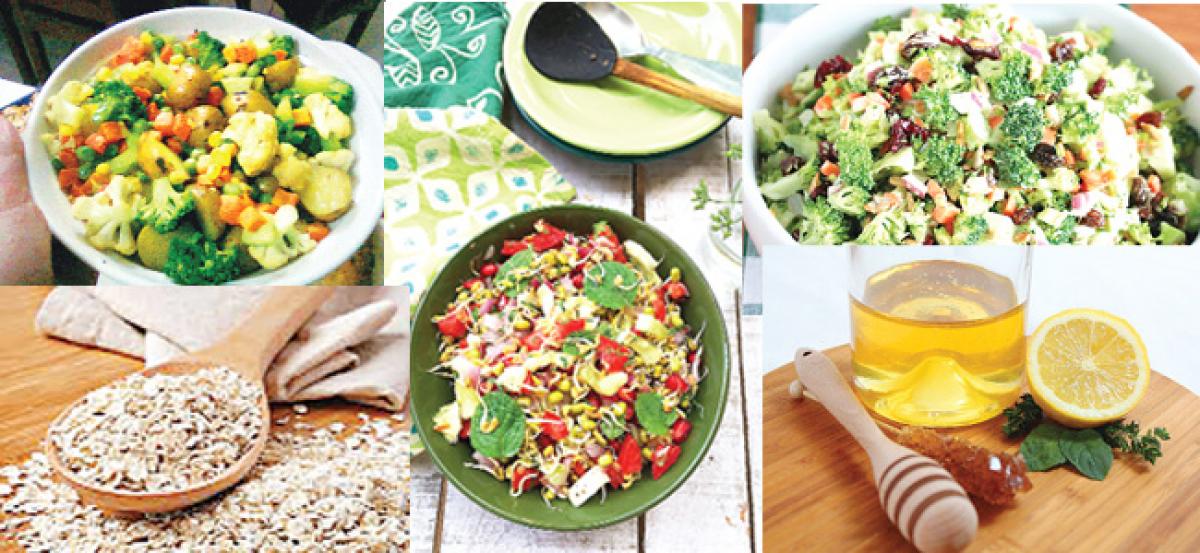Live
- Pushpa 2 Theatre Canteen Owner Bites Customer’s Ear in Gwalior
- RG Kar tragedy: Statement of forensic doctor who took pictures of victim’s body crucial for CBI
- Include Valmiki community in ST list, MP Ambica pleads
- Nara Lokesh Urges Rapid Investment Approvals to Boost Employment in MSME Sector
- Chandrababu Advocates Strict Measures for Social Welfare and Infrastructure Development in AP
- Show of brotherhood by Vijayan, Stalin at event to honour Dravidian icon
- District Collectors’ conference with CM begins
- Celebrations kick off in Saudi Arabia to welcome FIFA World Cup 2034
- Google Unveils Jules AI to Help Developers Fix Code Errors
- Bengaluru Techie’s Tragic Suicide Sparks Outrage Over Family Disputes and Legal Failures
Just In

People who consider themselves an average wine drinker consume an excess of 2,000 calories per month, which is equivalent to 141 ice creams a year. Apart from this, excessive intake of alcohol leads to binge eating.
Parties offer a wide selection of delicious treats and alcoholic concoctions that anybody would find hard to resist. But, don’t let the tortuous morning with a dreadful hangover and an increased waistline deter your party spirit. Follow a detox diet and stay fit as a fiddle
People who consider themselves an average wine drinker consume an excess of 2,000 calories per month, which is equivalent to 141 ice creams a year. Apart from this, excessive intake of alcohol leads to binge eating. Also people with hangover, after the party night cancel exercise plans for the next day and prefer to be in bed watching TV, further adding to calories.
The way our body metabolises alcohol is different from other foods and beverages. Our body perceives it as ‘toxic’ and therefore processes it via liver, instead of digesting within the gastrointestinal system. Hence, all the calories that one consumes while drinking may not be properly metabolised and instead get directly stored somewhere in the body as fat cells.
It makes a difference how much one drink on any day and how often one has a ‘heavy drinking day’. The more drinks you have on any one day as compared to heavy drinking days over a period of time, the risk becomes greater not only for an alcohol related disorders, but also can lead to various health complications. If you’re in the mood of partying make sure you limit your alcohol intake to four drinks a day for men and three drinks a day for women.
Following a detox plan after parties and celebration days can be a good idea to get your body back on track. A detox plan may not help in cleansing the body 100 per cent but, it is helpful in rejuvenating body to a certain extent.
Complete detox plan:
Upon waking:
Start your day with some hot water with freshly squeezed lemon juice with honey. You may also opt for wheat grass juice, ginger tea, green tea, chamomile tea or carrot juice. Enjoy your morning drink with dates.
Breakfast:
You may include oats, light porridges, egg whites and fruits. Bajra, palak or corn parathas are also good choices to consider with methi or mustard leaves subzi
Lunch:
Consider diet rich in vegetables in the form of salads including broccoli, cauliflower, along with cereals and lean meat (chicken stew / grilled chicken) or mushroom pulao (use warming spice like garlic, ginger, cinnamon and pepper) or rasam and rice.
Evening snacks:
Have fruit Juice or green tea with healthy chaat or roll comprising sprouted methi seeds, Brussels sprouts with pomegranate, egg whites (boiled/scrambled) and cut fruits.
Dinner:
Include lots of boiled vegetables like broccoli, cauliflower, and fennel and consume in the form of salads along with cereals (broken wheat/buckwheat) or lean meat (chicken stew / grilled chicken). Consider freshly prepared vegetable soups containing red bell peppers, ginger and turmeric. Broccoli soup can be a good option.
Tips to have a detox meal:
• Make sure you keep yourself hydrated all through the day by including water, tender coconut, buttermilk, citrus fruit juices, cucumber juice, etc. Avoid sugar intake in your diet.
• Add fiber to your diet by including bran, flax seeds, oatmeal or buck wheat, dried beans, peas, methi seeds and legumes both whole and
sprouts.
• Opt for some delicious food recipes packed with the goodness of protein, fibers and heart-healthy fats. Try including millets like ragi, jowar, bajra, maize along with whole wheat, soya products and rice bran in your diet.
• Add antioxidant rich foods like grapes, berries, grapes, carrots, mangoes, pumpkin, peach, orange, papaya in your diet.
• Salmon, oysters and sesame seeds, are a good option to consider.
• Try avoiding heavy workouts and exercises. Light yoga and meditation can be a good idea to warm up the body.
• Avoid fast food, fried food, caffeine, alcohol, red meat and sugary drinks. Including these while following a detox plan will further add to toxins in the body that you are trying to eliminate.
-The writer is a Dietician Executive at Columbia Asia Hospital.
By Pavithra N Raj

© 2024 Hyderabad Media House Limited/The Hans India. All rights reserved. Powered by hocalwire.com







